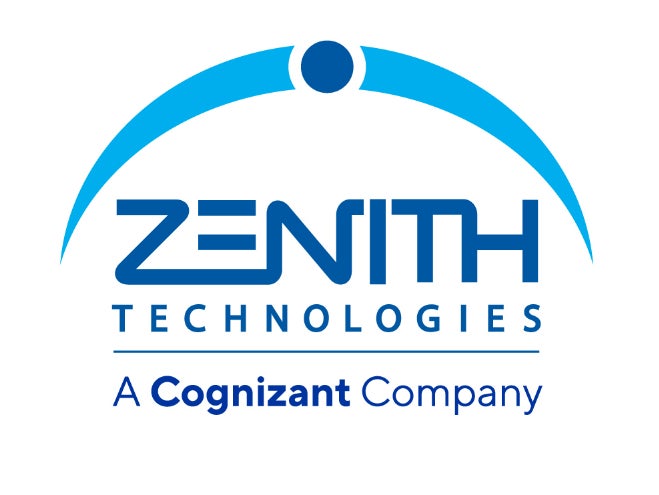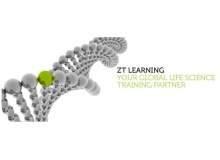Life Sciences Manufacturing Transformational Change
Last year was a watershed year for Life Sciences Manufacturing, with themes such as Industry 4.0, Digitalisation, Internet of Things (IoT), advanced analytics and cybersecurity at the vanguard of studies.
Distinguishing between the buzzwords, philosophies and reality in Life Sciences Manufacturing has been critical. According to Zenith CEO, Joe Haugh; ‘It’s easy to talk about these industry terms without understanding their true meaning, implications or reality for our customers.’
In this article we look at how our business has evolved this year, to better meet the needs of our customers, as well as the trends we see shaping the industry through 2020 and beyond.
Our thoughts are based on Zenith’s experiences in Life Sciences Manufacturing over 2019, in which 1.2 million engineering hours were booked to over 1481 Life Sciences projects.
A drive towards resilient manufacturing through cybersecurity
When we look at the breakdown of project work completed this year, we see a significant increase in cybersecurity or resilient manufacturing consultancy. According to a Deloitte report: Cyber & Insider Risk at a Glance: The Pharmaceutical Industry the pharma sector is the primary target for cybercriminals looking to steal IP – the estimated cost of cybercrime to the market is suggested to be up to $1.8 billion in the UK alone in 2020.
In response to this developing market, we have seen a greater prominence of cyber engineering strategy project work filtering down. Our customers are adopting such practices as; robust cybersecurity maintenance processes (ensuring customer have the highest level of protection at all times,) cyber hygiene standard practices (to prevent compromise of OT networks,) and control systems security responses (including a suite of prepared tools and practices to be deployed when an intrusion is detected.)
Most of the Cyber Security work we completed in 2019 focused on the design phase and the inclusion of cyber considerations into Operational Technology (OT) project deployment strategies. We see this trend continuing into 2020. Our projects now often include a ‘Secure Infrastructure’ team where the cybersecurity team and the infrastructure team have combined to be ‘One Team’.
Increased flexible production strategies
We have also seen an increased need from our Bio-Pharma customers, for increased flexibility combined with simplified production strategies. One area in which we have demonstrated this is in the adoption of single-use technology.
Single-use or disposable bioprocessing equipment is now used widely throughout preclinical and clinical manufacturing and is increasingly being adopted for commercial products manufacturing. Our customers have quickly realised that it offers faster turnaround for smaller batches due to the avoidance of cleaning, sterilisation and validation prior to usage. We have also seen an increase of smaller production facilities and automated labs utilizing Cell and Gene therapies for personalized medicine approaches. Although this strategy is giving increased flexibility many of our customers are seeing an increase in logistical complexity caused by the increased number of components and consumables required.
We are also starting to see the number of contract manufacturers we work with has been on the rise. These facilities need to have flexible manufacturing practices, that enable them to produce multiple medicines to meet industry demands.
Continuous manufacturing
This year we have also witnessed a continued shift towards continuous manufacturing, with many of our customers taking advantage of increased optimization and cost savings as a result. Over the last few years, continuous manufacturing has moved out of preclinical and clinical manufacturing including full-scale production both in drug substance and drug product manufacturing. They have seen benefits including; a reduction in production costs of 15-30%, increased overall equipment efficiency (OEE) of 75% in many cases, a 60-80% reduction in end-to-end batch lead time, as well as significant reductions in inventory and utility costs. There is also a requirement for smaller facilities being needed to house this type of plant.
A move towards continuous processing has also followed the larger theme of digitalisation. The convergence of IT and operational technologies (IT-OT) has the potential to enable new capabilities across Life Sciences Manufacturing for years to come.
Unlocking the potential of data
Another prominent theme we have seen in 2019 is our customers wanting more out of the data they have. Our project delivery has highlighted that the focus in manufacturing data analysis is about quality, not quantity. Engineers need fewer variables and more data points for those variables in order to work more effectively and draw genuine conclusions from data. Our customers require a narrow, deep focus – not a broad and superficial one. The general discussion and project objects have been about delivering answers to the big questions, ‘how is my batch doing,’ and ‘has this deviation affected product quality.’
Our customers need the capability to derive genuine and actionable intelligence from their data – not to just access and compile it. In this sense digital data strategies need to be built in at the project Basis of Design (BoD) to ensure operators, supervisors and executives have access to the data they require to build process and business excellence.
From our experience integrity and contextualization of data is of paramount importance, to ensure our customers get the most value out of what they have, thus unlocking the value and power of their data.
In 2020, it is our belief that Life Sciences will be demanding ‘Big Answers’, rather than ‘Big Data’.
Delivering Life Sciences 4.0
2020 will see the continued development of our Life Sciences Manufacturing offering to meet the changing needs of our customers. By joining forces, Zenith Technologies and Cognizant can truly transform the Life Sciences industry and help develop the digital factories of the future. Bridging the IT OT divide will enable customers to make tangible business improvements and obtain a new level of insight. Our combined approach will enable our customers to leverage data analytics, cloud technology, and IoT capabilities, to truly deliver on their Life Sciences 4.0 goals and ambitions.
For more information, please fill out the enquiry form attached to this page.



